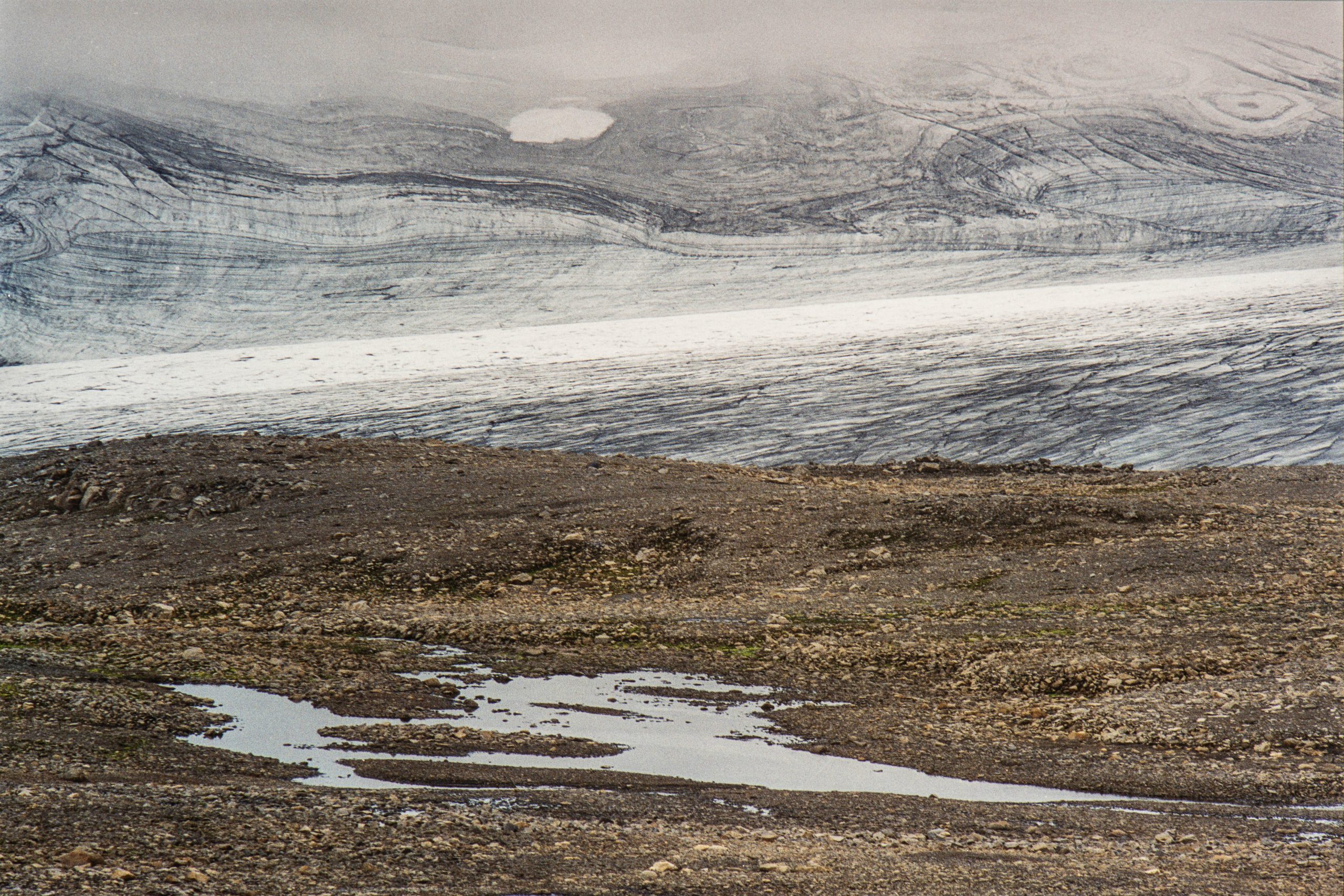The Montreal Museum of Fine Arts’ latest exhibition captures the complexities of global warming
I have rarely left a museum feeling emotional and so deeply invested in the curator’s cause. Walking out onto Sherbrooke Street after leaving Ecologies: A Song for Our Planet, I found myself breathtaken and with a heavy heart; both hopeful and troubled for the future that awaits us.
Curated by Iris Amizlev, curator of intercultural arts, Ecologies features over 90 works from the museum’s collection, all of which interpret the current environmental crisis in a different way. Featured artists include Shuvinai Ashoona, Olafur Eliasson, and Lorraine Gilbert.
Upon walking into the space, viewers can observe Giuseppe Penone’s Path (1983), an almost whimsical sculpture that appears to be at once a human and a flowering tree. Penone’s bronze cast figure serves as a demonstration and connection between humans and nature — a theme which Amizlev has made apparent at various instances throughout the exhibition.
Another example of the relationship between humans and the environment can be observed in Lorraine Gilbert’s Boreal Forest Floor, La Macaza, Quebec (2010). The print, which is only half of a diptych from the series “Once Upon a Forest,” features manipulated photographs of plants that are native to Quebec.
Gilbert manipulated the photographs, creating what is essentially a collage, in an attempt to give viewers a “man-made” view of an already beautiful landscape. By resizing, reorganizing, and essentially recreating the scenery, the work demonstrates society’s inclination towards controlling a natural process.
Further in the space, viewers can admire Osuitok Ipeelee’s Untitled (Walruses) (1977) and Peter Qumaluk Itukalla’s Untitled (Bear and Cub) (2003). Though the works are not directly about the climate crisis, the stone sculptures capture the beauty of the threatened Canadian wilderness.
By referencing Indigenous artists and the impacts of colonization, Amizlev makes the important connection between a longstanding history of environmental injustice and the mistreatment of Indigenous peoples, two issues which fall hand-in-hand.
Olafur Eliasson’s Untitled no. 44 (1997), from his series “Iceland,” is a print featuring a stunning depiction of an Icelandic landscape. The contrast between the grassy plain and snowy field in the distance allows viewers to appreciate the grandiosity and serenity of the vast Nordic region.
Eliasson’s works frequently incorporate science, and specifically more “elemental” materials such as water and air. The Danish-Icelandic artist primarily creates installations, and explores themes such as weather, the environment, and space.
In contrast to Eliasson’s tranquil photograph, Adrian Stimson’s Beyond Redemption (2010) is forthright and provocative. Consisting of a taxidermied bison surrounded by ten bison skins draped across black crosses, Stimson’s installation pays homage to the history and importance of the bison in Indigenous communities.
Stimson, a member of the Siksika nation, sacrificed a bison as a means of honouring the near-eradication of the species, as well as the Indigenous tribes who rely on them for sustenance. He offers a glance at the importance of the bison in Indigenous spirituality, as well as the ramifications of human actions on a group of animals that once dominated the wilderness.
Presented alongside Ecologies, viewers can view Paul Walde’s mesmerizing video installation, Requiem for a Glacier (2013). Performed by over 50 artists on the Farnham Glacier in British Columbia, Walde’s piece serves as an homage to the land.
In addition to being threatened by global warming, the government of British Columbia had announced developing a ski resort on the unceded Indigenous land of the Ktunaxa Nation, causing a series of land disputes which lasted over a decade. Walde’s performance features a choir singing the Latin translation of the press release published by the government authorities.
At once aesthetically gratifying and informational, Ecologies provides the public with a compelling narrative and ode to planet Earth. Amizlev’s selection of works so profoundly captures the intricacies and complexity of the climate crisis, offering viewers an experience that is both alarming and stunning.
Ecologies: A Song for Our Planet is on display at the Montreal Museum of Fine Arts, at 1380 Sherbrooke St. W., until Feb. 27, 2022. The museum is open from 10:00 a.m. to 5:00 p.m. Tuesday to Sunday. Reservations must be made in advance. To book a ticket, visit https://www.mbam.qc.ca/en/ticket-office/.
Photos courtesy of the Montreal Museum of Fine Arts.
